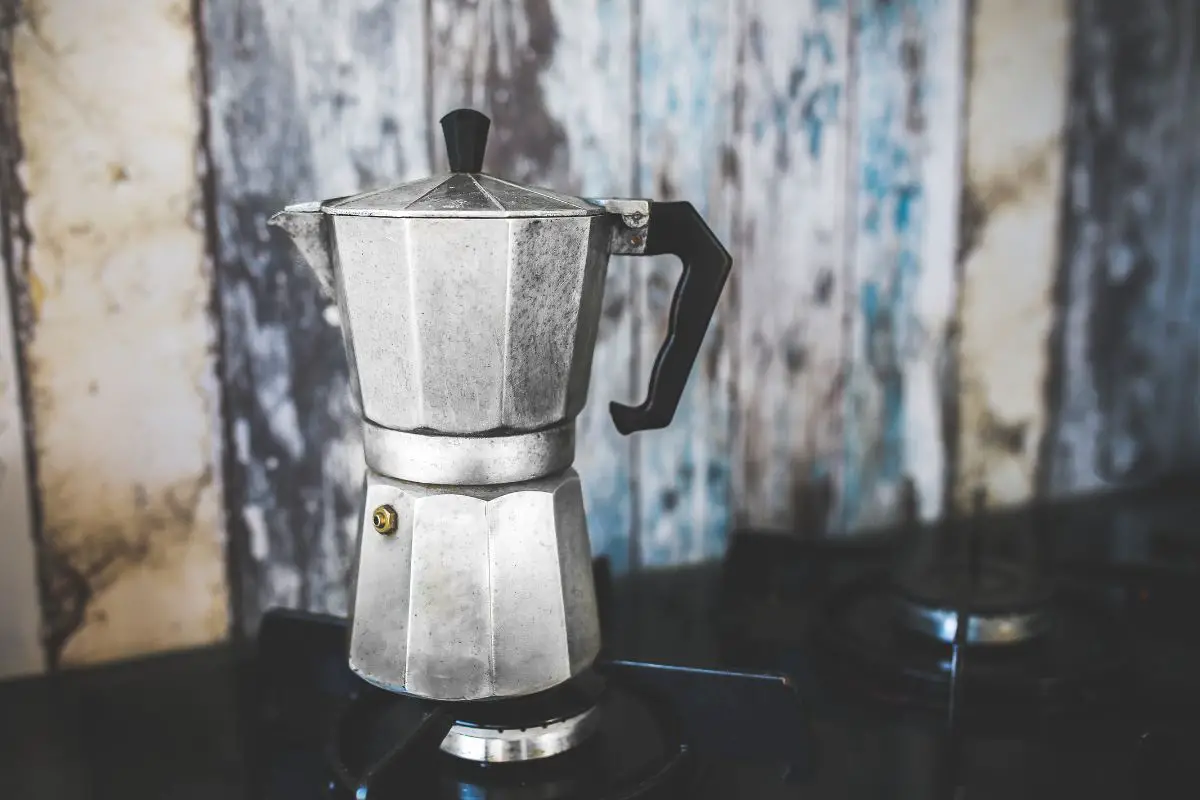While coffee is a delicacy among many people across the globe, brewing tasty coffee requires using the best coffee maker. However, some coffee makers are feared as they’re believed to pose health risks. Among the most loved coffee makers is the moka pot, which got its name from its Italian inventor. This coffee maker is available as a stove top or electric espresso maker. It’s typically made of aluminium. The espresso pot uses pressure and heat to make rich, dark, and inky coffee. Although aluminium moka pots are popularly used by coffee lovers, are they truly safe?

Dangers Posed By Aluminium
Over the time, certain materials have been proven to pose health risks, such as anything containing BPA plastics or lead. Aluminium has also been reported to be a dangerous material. Although some sites claim that aluminium poses health risks, those claims aren’t accurate. Actually, aluminium comprises the highest amount of metals in the crust. It’s used in making cosmetics, antacids, and pop cans. It’s also a common food additive.
Theoretically, aluminium can be toxic. However, aluminium is hardly toxic when ingested orally. You have to consume a lot of aluminium to pose health risks. If you store a drink or acidic sauce in an aluminium container or pot, then you’re increasing the overall amount of aluminium consumed. The longer you store the liquid, the higher the chances of some aluminium leeching out into the liquid. Consequently, you’ll consume more aluminium.
Regardless, consuming from aluminium cans and bottle isn’t a problem, unless it’s a child. For instance, consuming from aluminium bottles for an entire day, with acidic drinks such as apple juice and tea, an adult won’t reach their weekly aluminium intake.
Are Aluminium Percolators Safe?
Existing research shows that aluminium bottles leach more aluminium into drinks than making coffee in any kind of an aluminium percolator. Making coffee in an aluminium pot daily and consuming about 3 liters of coffee weekly only accounts for about 4% of aluminium intake in a week. Thus, even making coffee in moka pots won’t exceed the weekly intake of aluminium. In fact, antacids contain a lot more aluminium than coffee.
From current research findings, health sites that indicate aluminium coffee makers are unsafe are only scaremongering. Current scientific findings prove that consuming aluminium orally doesn’t cause any health conditions. Initial research findings that linked certain health conditions to aluminium ingestion aren’t factual. Recent research findings show that no major health concern result from using aluminium coffee makers. Thus, the legitimacy of the reports indicating that aluminium is harmful when ingested are questionable.
If you have any worries about the safety of aluminium, you can use stainless steel coffee makers. Although they’re costlier than aluminium moka pots, there has never been any health concern about stainless steel. Besides, they work just like aluminium espresso pots. When brewing coffee, they build pressure and force water upward through various components to produce delicious coffee.
The main difference between stainless steel and aluminium moka pots is that aluminium is a better heat conductor than stainless steel. Thus, aluminium moka pots heat up faster, meaning that they’re faster in brewing coffee. Regardless of the moka pot you choose, having an espresso machine is a great thing for anyone who loves coffee. Besides, espresso makers last for many years.